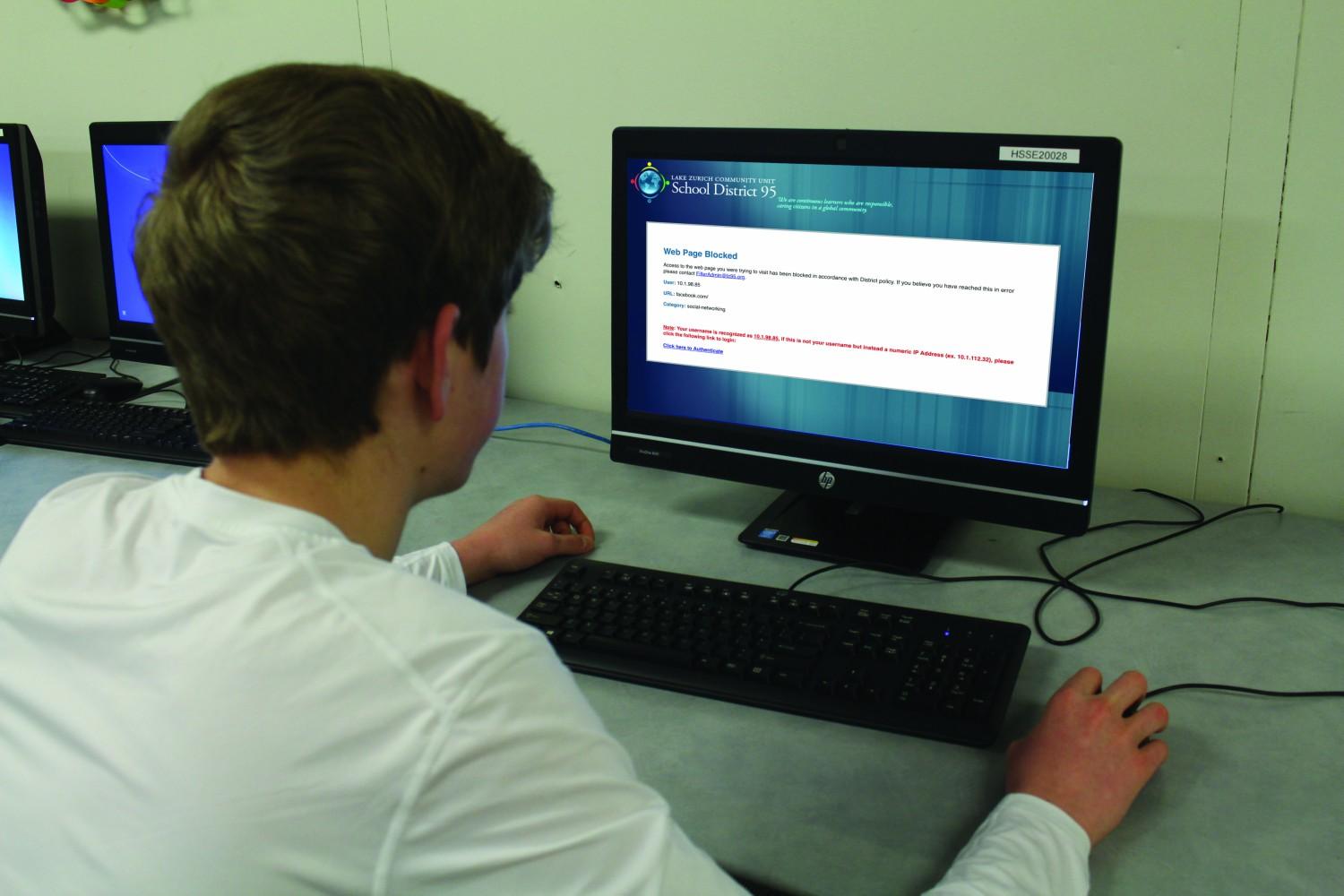Under Surveillance: student’s rights to online privacy
March 21, 2016
You are being watched.
There is a record for every phone call you have made.
Security cameras capture your picture when you walk into the grocery store.
Deleted texts can be recovered by your cell phone carrier.
Your tweets are automatically filed in the library of congress, the second you post them.
Schools & Online Privacy
Your school issued iPad is completely examined in every way through the Mobile Device Management system, or MDM, according to Melissa Gray, District 95 systems engineer.
“The management system is what controls the iPad, it’s what helps us put it on the network, it’s what helps us provide you guys with support for the iPad, but what it can also do is read what’s on the iPad in terms of what apps are installed and things like that,” Gray said.
Students do not have the right to any privacy when they are given a school-issued device, says Gray.
“It is the expectations of your privacy [to remember]. If work gives me a computer, I don’t expect everything on that to be private. But my cellphone, that’s mine, I would expect to be private. Privacy is a huge thing that you can’t just nail down into one sentence,” Gray said.
However, the same management by the district is used if personal devices are connected to school Wi-Fi. The devices are observed by an internet filtering system, according to Crystal Steker, District 95 director of Technology.
“We can see any network traffic from any device on our network at any time. Now, you can imagine that we would never go looking for that, but if there was an issue, which a lot of times it is that ‘I can’t get to this website that I need for my class’. Sometimes we block games that student may want to go to, but they’re not educational. At all times, we know what network traffic that is on our network,” Steker said.
This supervision of network traffic happens anytime a device is connected to the school managed Wi-Fi. Konnor Kinimonth, sophomore, knows personally how this process works.
“I got called down the dean’s [office] and they told me to take out my iPad. My own iPad, not the school one. I don’t know how they knew I had. Probably over the Wi-Fi. They deleted [the VPN] and gave it back though,” Kininmonth said.
Cyberbullying & Online Privacy
The school district are not the only ones who have the power to invade a student’s privacy. Grant Austin, junior who says he’s a victim of cyberbullying, knows first hand what it’s like to have classmates harass him on social media.
“It was very uncomfortable for me, [the first time I received a hateful comment]. It progressed from there, derogatory terms, mostly. People just want me to have a reaction,” Austin said.
Since Austin is a YouTube content creator and has 17,000 followers on twitter, he receives a lot of hatred from cyberbullies online. Some of these bullies are classmates and some people he does not know personally. He often has his phone number posted on social platforms, like Twitter, and receives prank calls frequently.
“I’d have a question for people who don’t know me, but who attack me online is ‘why?’. ‘Why would you hate on someone that you don’t know personally?’ You can’t just disrespect someone because of what you see online,” Austin said.
While these cyberbullies are exercising their right to free speech, they are hurting someone in the process. The malicious words that they write now can always be found somehow, and could be used against them if their victim takes action, according to Jennifer Paulus, Hawthorn Woods Chief of Police.
“There’s a few different misdemeanors [for cyberbullying]. The most serious is when you bully someone to the point where they hurt themselves or others, because it becomes a criminal aspect, not just a civil aspect. Like if a teenager is bullied to the point where the commit suicide, and all the evidence is there, there’s criminal offenses,” Paulus said.
Even if the bullies delete the tweets or emails they write, the phone calls they made, or the texts and pictures they send, it can still come back to haunt them, according to Paulus.
“Everything you put is out there. Just because you deleted it or took it down or whatever doesn’t mean it’s not out there and it can be used against you,” Paulus said. “Just for an example, people think that if they delete text messages off their phone, but depending on the service provider and [phone] they have, that stuff is still out there. If the police or the forensic experts want that information, generally there’s a way to find it.”
Future employers, college admissions departments, and concerned parents can see everything you have put online, according to Tiffany Reagan, dean of students.
“Often we are all naïve in thinking what we post will not affect us or be summed up as describing who we are. but we keep hearing media cases of people losing their dream jobs, opportunities, legal issues, etcetera,” Reagan said “ [What you say now] is a snapshot of you in a moment of emotion which could linger for the rest of your life regardless of how much you may have grown or changed.”
